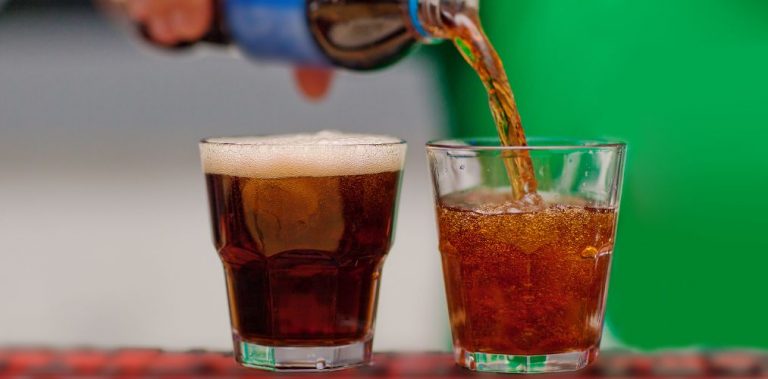Maintaining Sufficient Gut Health
How Diet Affects Irritable Bowel Syndrome
Irritable bowel syndrome (IBS) is a common disorder that affects the large intestine. The symptoms of IBS include abdominal pain, bloating, constipation, diarrhea and gas. This can make life rather uncomfortable, but thankfully there are natural ways to eliminate the symptoms of IBS, as well as foods to avoid with IBS.
While the exact cause of IBS is unknown, certain foods can trigger IBS symptoms and should be avoided. In this article, we will discuss some of the worst foods for someone with IBS, which foods to avoid and foods that can supplement your diet. However, it is recommended that you see a doctor who can prescribe the best dietary plan and if necessary, medication for your condition.
Foods to Avoid with Irritable Bowel Syndrome
Here is a list of the top six trigger foods that you should avoid if you have IBS.
- High FODMAP Foods: FODMAP stands for fermentable oligosaccharides, disaccharides, monosaccharides and polyols, which are short-chain carbohydrates the small intestine poorly absorbs. When they reach the large intestine, they are fermented by gut bacteria, producing gas and bloating. High FODMAP foods include wheat, barley, rye, onions, garlic, beans, lentils, milk and cheese.
- Dairy Products: As mentioned above, dairy is also a trigger food for IBS and should be avoided at all costs. There are some excellent alternatives for milk, such as almond milk or soya milk, however, if you’re a cheese lover, then you can also eat lactose-free cheeses.
- Fried and Greasy Foods: Foods that are high in fat and fried or greasy can cause abdominal pain and diarrhea in people with IBS. These foods take longer to digest and can increase the risk of constipation. Some examples of high-fat foods to avoid include fried chicken, pizza and french fries.
- Spicy Foods: Spicy foods can irritate the lining of the stomach and cause abdominal pain and diarrhea in people with IBS. Foods that are high in spice include chili peppers, hot sauce and salsa.
- Caffeine and Alcohol: Caffeine and alcohol can stimulate the digestive system and cause diarrhea and abdominal pain in people with IBS. These drinks can also cause dehydration, which can make symptoms worse. It is best to limit or avoid caffeinated and alcoholic beverages.
- Carbonated Beverages: Carbonated beverages, such as soda and sparkling water, can cause bloating and gas in people with IBS. These drinks can also lead to dehydration and worsen symptoms.
Foods to Supplement Your Diet
To improve your condition then you can consider the following list of foods that will reduce the symptoms of IBS and improve your overall health.
- Soluble Fiber: Soluble fiber can help to regulate bowel movements and reduce constipation. It also helps to promote the growth of good bacteria in the gut. Foods high in soluble fiber include oats, bananas, sweet potatoes and carrots.
- Probiotics: Probiotics are live bacteria that can help to improve gut health. They are found in fermented foods, such as yogurt, kefir, sauerkraut and kimchi. Probiotic supplements are also available.
- Low FODMAP Foods: A low FODMAP diet restricts certain carbohydrates, that trigger IBS symptoms. Maintaining a low FODMAP diet can significantly improve your condition. Low FODMAP foods are foods that are easily absorbed in the small intestine and do not cause bloating or gas. These foods include rice, quinoa, chicken, turkey, fish, eggs, lactose-free milk and lactose-free cheese.
- Lean Protein: Lean protein, such as chicken, fish and turkey, can help to reduce inflammation in the gut and promote healing. It is best to avoid red meat and processed meats, as they can cause inflammation and worsen symptoms.
- Herbal Teas: Herbal teas, such as peppermint and chamomile, can help to soothe the digestive system and reduce abdominal pain. It is best to avoid caffeinated teas, such as black tea and green tea, as they can stimulate the digestive system and cause diarrhea.
In Conclusion
IBS is a common disorder that can be managed with dietary changes. It is important to avoid foods that trigger symptoms and to supplement your diet with foods that promote gut health. High FODMAP foods, fried and greasy foods, spicy foods, caffeine and alcohol and carbonated beverages should be avoided. Soluble fiber, probiotics, low FODMAP foods, lean protein and herbal teas can supplement your diet and improve symptoms.
If you have IBS and are experiencing symptoms, speaking with your healthcare provider is important. They can help you develop a personalized treatment plan that includes dietary changes and other therapies to manage your symptoms and improve your quality of life. With the right approach, many people with IBS can successfully manage their symptoms and enjoy a healthy, balanced diet.

